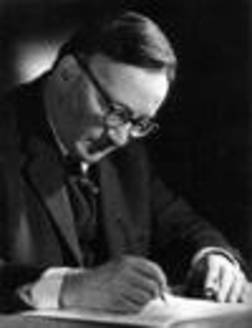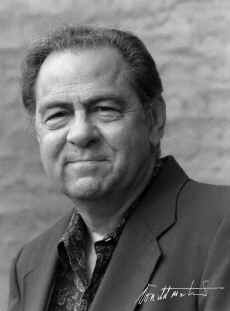Related Research Articles
Wilfrid Howard Mellers was an English music critic, musicologist and composer.

Alun Hoddinott CBE was a Welsh composer of classical music, one of the first to receive international recognition.
Alan Ridout was a British composer and teacher.

Franz Theodor Reizenstein was a German-born British composer and concert pianist. He left Germany for sanctuary in Britain in 1934 and went on to have his teaching and performing career there. As a composer, he successfully blended the equally strong but very different influences of his primary teachers, Hindemith and Vaughan Williams.
Arnold Atkinson Cooke was a British composer, a pupil of Paul Hindemith. He wrote a considerable amount of chamber music, including five string quartets and many instrumental sonatas, much of which is only now becoming accessible through modern recordings. Cooke also composed two operas, six symphonies and several concertos.

Robin Greville Holloway is an English composer, academic and writer.

Donald James Martino was a Pulitzer Prize winning American composer.

Osian Gwynn Ellis was a Welsh harpist, composer and teacher. He was principal harpist of the London Symphony Orchestra, a founding member of the Melos Ensemble, and a harp teacher at the Royal Academy of Music. Many composers wrote music for him. From 1959 onwards, Ellis had a close professional partnership with Benjamin Britten that lasted to the latter's death. He often first performed and recorded Britten's works.

John McLeod was a Scottish composer who wrote music in many media including film and television.
Gervase Alan de Peyer was an English clarinettist and conductor.

William Waterhouse was an English bassoonist and musicologist. He played with notable orchestras, was a member of the Melos Ensemble, professor at the Royal Northern College of Music, author of the Yehudi Menuhin Music Guide "Bassoon", of The New Langwill Index, and contributor to the New Grove Dictionary of Music and Musicians.
The Melos Ensemble is a group of musicians who started in 1950 in London to play chamber music in mixed instrumentation of string instruments, wind instruments and others. Benjamin Britten composed the chamber music for his War Requiem for the Melos Ensemble and conducted the group in the first performance in Coventry.
Richard Henry Walthew, often known as Richard H. Walthew was an English composer and pianist, and an important figure in English chamber music during the first half of the 20th century.
Watson Douglas Buchanan Forbes was a Scottish violist and classical music arranger. From 1964 to 1974 he was Head of Music for BBC Scotland.
Joseph Francis Castaldo : Born December 22, 1927 –, Manhattan, New York Died January 27, 2000 in Philadelphia Pennsylvania was an American composer of classical music and a teacher of musical composition and music.

Kenneth Leighton was a British composer and pianist. His compositions include church and choral music, pieces for piano, organ, cello, oboe and other instruments, chamber music, concertos, symphonies, and an opera. He had various academic appointments in the Universities of Leeds, Oxford and, primarily, Edinburgh.
Freda Swain was a British composer, pianist and music educator.
Alan Richardson was a Scottish pianist and composer.
References
- 1 2 3 4 Sebastian Forbes from Debrett's, retrieved 3 May 2013
- 1 2 Full Biography Archived 2014-11-29 at the Wayback Machine from Scottish Music Centre, retrieved 3 May 2013
- 1 2 3 4 Sebastian Forbes from Bach Cantatas, retrieved 3 May 2013
- ↑ Notes to The Scottish Viola: A Tribute to Watson Forbes, Nimbus CD 6180 (2102)
- ↑ Weston, Pamela (2001). "De Peyer, Gervase". In Sadie, Stanley; Tyrrell, John (eds.). The New Grove Dictionary of Music and Musicians (2nd ed.). London: Macmillan Publishers. ISBN 978-1-56159-239-5.